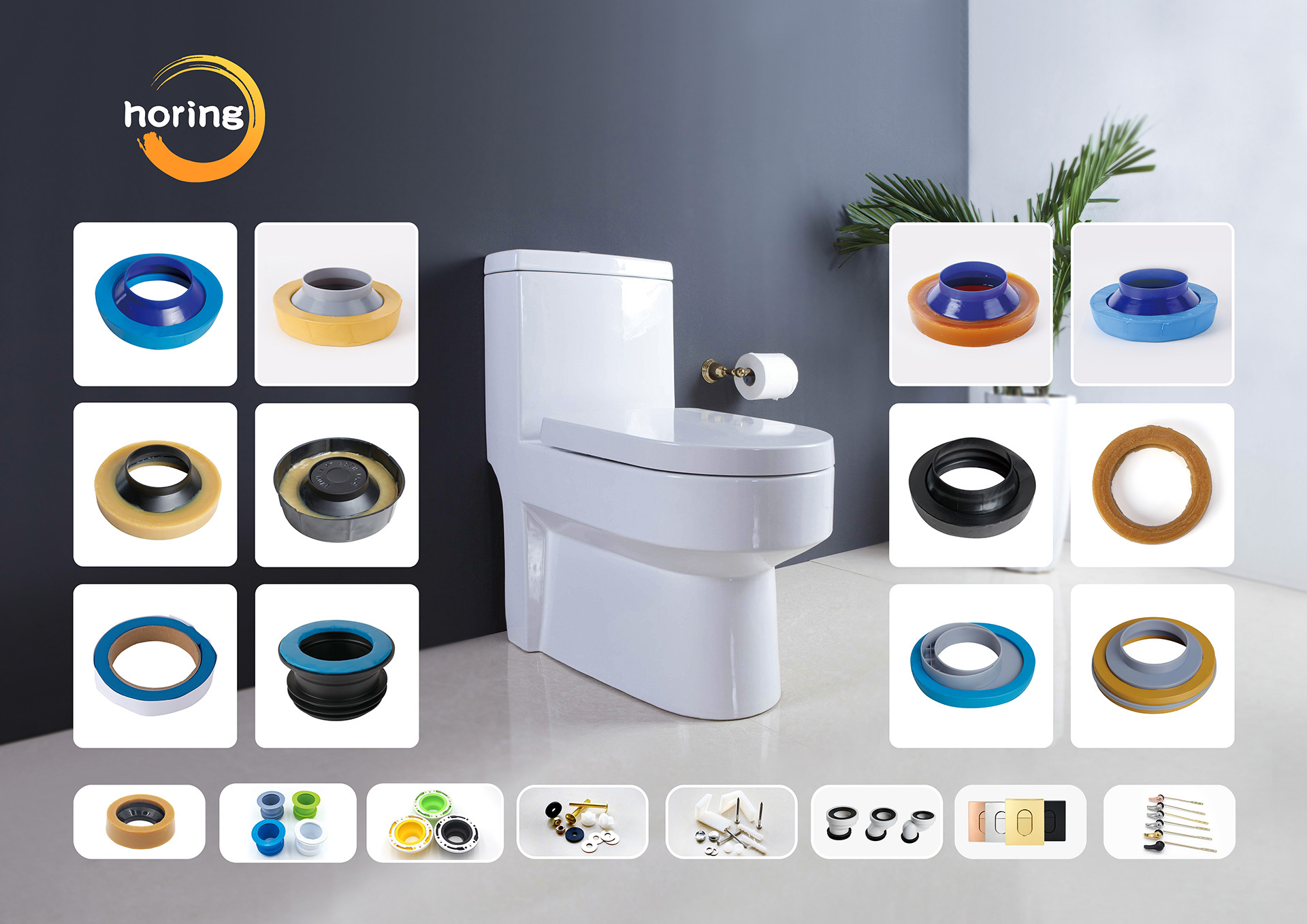Understanding the Role of Rubber Gaskets in Toilet Exportation
Release Time:
Apr 28,2025
Source:
When it comes to the construction and maintenance of toilets, rubber gaskets play a pivotal role. These components are integral to ensuring a watertight seal between various parts, such as the tank and bowl, which helps prevent leaks and maintain optimal functionality. In the context of the global market, understanding the role of rubber gaskets in toilets is vital for exporters in the industrial equipment and components sector, particularly those involved in fasteners and sealing devices.
Rubber gaskets are made from a variety of materials, including natural rubber, synthetic rubber, and other elastomers, each offering unique properties suitable for different applications. The choice of material can significantly affect the performance of the gasket, including its resistance to water, chemicals, and temperature variations. For exporters of rubber gaskets for toilets, selecting the right material is essential to meet the diverse needs of international markets.
One key aspect to consider is the manufacturing process of rubber gaskets. High-quality production involves precise molding and curing processes that ensure the gaskets maintain their shape and function over time. This precision not only guarantees a better seal but also enhances durability, reducing the frequency of replacements and maintenance. As such, exporters must prioritize quality control in their operations to deliver reliable products to customers.
Another important consideration is the compliance with international standards and regulations. Different countries may have specific requirements regarding plumbing components, including gaskets used in toilet manufacturing. Exporters must be well-versed in these regulations to ensure their products meet safety and performance standards, which can significantly influence their success in the global market.
In addition to compliance, effective communication with clients and understanding their specific needs can enhance the exporter’s reputation. Providing detailed information about the specifications, applications, and benefits of rubber gaskets can foster trust and facilitate smoother transactions. Educating clients about the importance of using high-quality gaskets can also lead to better long-term partnerships.
Furthermore, the environmental impact of rubber gaskets is an emerging concern. As sustainability becomes a priority in many industries, exporters should consider the use of eco-friendly materials and practices in their production processes. This not only aligns with global trends but can also attract environmentally conscious buyers.
In conclusion, rubber gaskets are a fundamental component in the manufacturing of toilets, significantly contributing to their efficiency and reliability. For exporters in the industrial equipment and components sector, understanding the intricacies of rubber gasket production, compliance, and market needs is crucial for success. By emphasizing quality and sustainability, exporters can strengthen their position in this competitive field and ensure they meet the demands of customers globally.
Rubber gaskets are made from a variety of materials, including natural rubber, synthetic rubber, and other elastomers, each offering unique properties suitable for different applications. The choice of material can significantly affect the performance of the gasket, including its resistance to water, chemicals, and temperature variations. For exporters of rubber gaskets for toilets, selecting the right material is essential to meet the diverse needs of international markets.
One key aspect to consider is the manufacturing process of rubber gaskets. High-quality production involves precise molding and curing processes that ensure the gaskets maintain their shape and function over time. This precision not only guarantees a better seal but also enhances durability, reducing the frequency of replacements and maintenance. As such, exporters must prioritize quality control in their operations to deliver reliable products to customers.
Another important consideration is the compliance with international standards and regulations. Different countries may have specific requirements regarding plumbing components, including gaskets used in toilet manufacturing. Exporters must be well-versed in these regulations to ensure their products meet safety and performance standards, which can significantly influence their success in the global market.
In addition to compliance, effective communication with clients and understanding their specific needs can enhance the exporter’s reputation. Providing detailed information about the specifications, applications, and benefits of rubber gaskets can foster trust and facilitate smoother transactions. Educating clients about the importance of using high-quality gaskets can also lead to better long-term partnerships.
Furthermore, the environmental impact of rubber gaskets is an emerging concern. As sustainability becomes a priority in many industries, exporters should consider the use of eco-friendly materials and practices in their production processes. This not only aligns with global trends but can also attract environmentally conscious buyers.
In conclusion, rubber gaskets are a fundamental component in the manufacturing of toilets, significantly contributing to their efficiency and reliability. For exporters in the industrial equipment and components sector, understanding the intricacies of rubber gasket production, compliance, and market needs is crucial for success. By emphasizing quality and sustainability, exporters can strengthen their position in this competitive field and ensure they meet the demands of customers globally.
Related News



